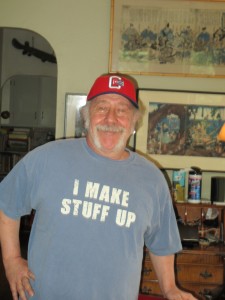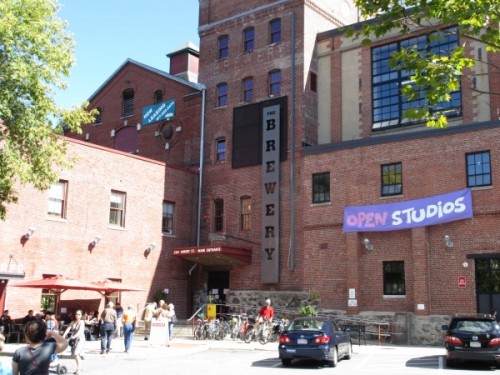Since I began these posts, I’ve written about politics more than enough times. But given the election is right around the corner, I refuse to stop. It’s just too damn important.
According to Gore Vidal: “The United States has one business party with two right-wing factions” he observed, “the Democrats and the Republicans.”
A sentiment I share, but this is one election where the devil is in the details. And these details have profound meaning for our country. The way we view government, individual liberties, civil rights, and the nature of the compact—or non-compact—we as people make with each other.
I believe in government. Not the way this one is run. Not the crude gluttony of our politicians. Not the lies, misrepresentations, and “gotchas” that constitute campaigns for political office. Not the obscene amount of money it takes to run for the smallest public office. All of this is horrific. But I still believe in government.
Only government has the potential to create the type of society in which I want to live. A society where each citizen is assured of food, clothing, shelter, healthcare, and a decent paying job. Only government has the potential of protecting people against racism, crime, and social hatred.
Potential isn’t reality and the reality is our government caters to the rich and powerful, who continue to generate giant profits off peoples’ housing problems, peoples’ job issues, peoples’ health good or bad, and government welfare. Worse, at this moment in time, there is no Teddy Roosevelt or Dwight Eisenhower or FDR standing in the wings to change what we have—a country moving rapidly toward the world that William Gibson envisioned in his great book Neuromancer written appropriately in 1984. A world controlled hook, line, and sinker by multinational corporations with government being a mirthless joke.
So why then is this election so important when both candidates answer to the Swells?
From where I sit, the importance lies with the slightly different direction and philosophical underpinnings of the two parties. These are not my father’s Republicans. They aren’t even mine. These New Republicans have no Clifford Cases, no Nelson Rockefellers, no Jacob Javitzs—hell, they have no Richard Nixons, something I never thought I would possibly write.
These New Republicans have Ayn Rand and her belief in Social Darwinism. These New Republicans have an inbred hatred for government, no matter how it’s run. Survival of the fittest might have made sense in various historical periods, but now it is nothing more than thinly veiled sadism. Fuck those who can’t help themselves, but give gobs of subsidies to the “job-creators,” a misnomer for “profit-makers.”
But those profits trickle down. Right. Like the guy who walked into the bar and asked for a “trickle down,” which the bartender promptly poured and handed to the richest white man in the room. That’s what trickle down has meant and will always mean.
The New Republicans Social Darwinism is the worst possible thing that can happen to our people. To create a country built upon it will grind what little remains of our social compact, our humanity, into dust.
The irony is that the New Republicans have managed to cloak survival of the fittest under the shroud of “family values.” Protect the fetus, which really means women of wealth get abortions by doctors while the poor, and working people are forced into back alleys—all the while outlawing contraception, which reduces the need for that which The New Republicans say they abhor. (I’d really like to know the over/under of the New Republicans, who have adopted a child.) Repeal Obamacare (a really sad excuse for national healthcare) and let those who can’t afford insurance take their children to emergency rooms while wealthy people receive the best healthcare money can buy. These are “family values?”
Gut social security. (I know, you can have a voucher—eye-roll here.) Get rid of the Department of Education. And finally pack the Supreme Court with folks who believe people of color, the openly gay, and women, operate on an even playing field with white men. This is what we want? These aren’t my family values.
From here, it looks like slash and burn. Yet we really are in all this together—if you exclude the multinationals and those 2% the Occupiers talk about. We need to care for those like ourselves and those less fortunate. We need government to rebuild our infrastructure (the real job provider) as well as reduce deficits. We need government to make certain there’s enough affordable housing to go around and to make sure that people aren’t left in the fumes of those who have full pockets and just want more. And we all need a court that doesn’t define a corporation as a person.
The Democrats aren’t going to turn government on its head and move in the direction I’d like to see. Far from it. But nuances are meaningful. Them devilish details. The Democrats (at least the ones I’d vote for, who unfortunately aren’t like Bernie Sanders) are simply not invested in the same draconian measures the New Republicans desire.
I too want to take back our government, but don’t want a country where every man, woman, and child is expected to care only about themselves and pretend that’s “progress.” Family values are interwoven with community values, which are interwoven with national values. And I believe this election sets the stage for what our society and culture will eventually become.













